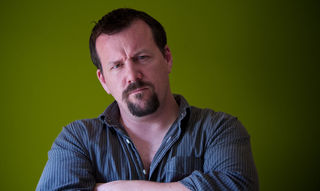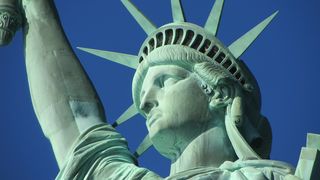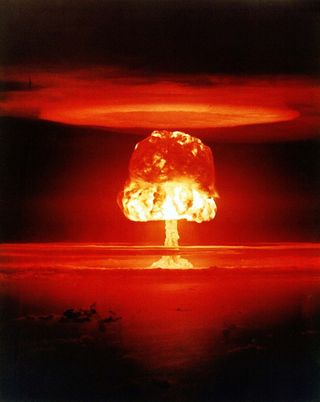Spirituality
Remembering 9/11, Who Are We, and Who Do We Want to Be?
Reflecting on the meaning of terrorism through the cultural lens of honor
Posted September 16, 2016
As a social scientist, I have the best job in the world. I get to examine human behavior scientifically and teach college students about what I (and others) discover. I get to ask questions about the human psyche at both the individual and collective levels and strive to understand the nature of the social animal that is humanity. Occasionally, I get to step back from my laboratory and my data analyses to ponder broader, deeper questions about humanity and our struggle to live together. This month marks the 15th anniversary of the terrorist attacks of 9/11, and on this anniversary, I am compelled to ask two such questions of myself and my fellow Americans. Fifteen years later, who are we, and who do we want to be?

Over the last decade, the focus of my research has been on what social scientists refer to as honor cultures. Honor cultures are societies that put enormous emphasis on the defense of reputation, and they justify acts of violence in the service of defending threats to honor. Men in honor cultures are expected to be tough, brave, and intolerant of disrespect, and women are expected to be loyal and sexually chaste. Living up to these gender-role expectations is what it means to have honor in such societies. Losing honor can lead to tragic, even irreparable social and personal damage.
Research shows that just as some nations tend to be more honor-oriented than others, certain regions of the United States (specifically, the South and West) tend to be more honor-oriented than others (specifically, the Northeast and Northern Midwest). Studies comparing people living in relatively more honor-oriented states and those living in less honor-oriented states show that “honor states” exhibit higher rates of argument-related homicides, suicides, school shootings, and deadly risk-taking, especially among white males—all, presumably, in the service of maintaining honor or escaping the consequences of dishonor. Measures of honor-based beliefs and values among individuals support these regional differences, as do laboratory experiments on how men respond to being insulted by strangers. Honor-oriented men are hypervigilant to insults and hyperaggressive when they believe they have been wronged.

On the anniversary of 9/11, as we reflect on the meaning of this event for our country, it seems reasonable to wonder what role this cultural belief system might play in inspiring acts of terrorism. On the surface, at least, the defense of honor might seem to have a strong connection to terrorist acts, which are often framed by perpetrators as retribution for perceived wrongs. Infamous 9/11 mastermind Osama bin Laden himself claimed that the honor of Islam demanded that he and his comrades bring jihad to America. Sometimes, though, such claims are little more than post-hoc justifications or rhetorical tools to persuade others and do not reflect terrorists’ true, underlying motives.
I wonder, too, whether this possible link is even the most important one for Americans to consider as we ponder the meaning of 9/11 for our country. Maybe the more important question for us concerns how our own honor-related beliefs and values might influence how we respond to terrorist attacks when they occur.
Consider the following thought experiment. Imagine you wake up one morning, and as you crack open the paper, you are met with an alarming headline: “The Statue of Liberty Has Been Attacked!” You scan the first page for details, sloshing your coffee on the paper in your earnestness. The attack, it turns out, is the work of terrorists from Afghanistan, possibly linked to Al Qaeda. Their viciousness claimed the lives of more than 250 people, many of them tourists and more than a few of them children. Adding insult to injury, the head of Lady Liberty was blown off by the attackers, its twisted and charred remains lying in disgrace at her feet.

This is the scenario that social psychologist Collin Barnes presented to people in a study several years ago, along with Lindsey Osterman and myself (Barnes, Brown, & Osterman, 2012). We gave this scenario to a sample of nearly 200 white men from around the United States. Besides measuring these men’s endorsement of honor-based beliefs and values, we also measured a variety of other characteristics, including their levels of religiosity, conservatism, and other personality characteristics that have been shown in previous studies to predict responses to intergroup conflict.
After describing the terrorist attack against the Statue of Liberty, we asked these men a set of questions to gauge their mental states in response to imagining this event. First, we provided them with space to write about their thoughts and feelings for as long as they wanted to do so. We later had a pair of judges (who didn’t know anything about our study’s purposes) read these open–ended responses and code them for their levels of hostility and anger. Next, we presented our participants with four additional “stranger–danger” scenarios designed to be much more ambiguous than the attack on the Statue of Liberty. One of these scenarios, for instance, read like this:
"You are standing in line at the post office when a dark–skinned man dressed in Middle Eastern garb walks in carrying a large, seemingly unmarked package. He is breathing hard, sweating profusely, and keeps looking at his watch."
We asked participants to read each of these four ambiguous scenarios and to rate how suspicious and threatening the person in the scenario seemed to them. These responses were designed to capture participants’ levels of vigilance to danger. Last, we asked participants to rate their support for severe interrogation techniques, even if those techniques cause lasting psychological or physical harm, as well as their support for America’s “war on terror.” We designed our measure of support for the war on terror to be rather extreme, in part to see just how far people might be willing to go in their responses to perceived threats. For instance, in one item we asked whether people believed it was appropriate to engage in “preemptive attacks on countries that are suspected of harboring or supporting terrorists.” In another item, we asked whether respondents believed that the United States “should use nuclear weapons to defend its interests” against terrorists.
The results of this study were striking. Participants with strong honor orientations expressed greater hostility in their open–ended responses to the fictitious terrorist attack, as well as greater suspicion and vigilance in response to the ambiguous stranger–danger scenarios and more support for the war on terror. In other words, men who endorsed the ideology of personal honor also appeared to feel a sense of collective honor threat after imagining an attack on a preeminent symbol of America, and they were more willing to support a policy of preemptive strikes and even nuclear retaliation after contemplating this fictional attack. The nation’s honor was their honor, and it was sacred. Those who violate what is sacred must pay with blood.

The implications of these studies should be rather clear, and they echo some of the rhetoric Americans have been hearing during this year’s presidential election cycle. Ted Cruz, for instance, has argued that America should “carpet bomb” the Middle East, and Donald Trump has suggested that America ought to be willing to use nuclear weapons to defend its interests. Sound familiar? This kind of political rhetoric is exactly what we might expect to hear from candidates with a strong, honor-based belief system, or from candidates trying to appeal to voters who do.
To be clear, honor cultures are not all bad. There are aspects of these cultures, and of this cultural ideology, that are positive. Honor cultures tend to be very polite and helpful, and they value loyalty and self-sacrifice for the welfare of their families and communities. Those are admirable qualities, without a doubt. But those who are bound to this cultural syndrome are likewise prone to hypervigilance and violent retribution when they feel their honor has been impugned. This cultural mindset is more than a little problematic for the most powerful nation on earth, I think.
As Americans ponder the meaning of 9/11, I want to suggest that the following piece of cultural wisdom take root in their reflections. What is true for us as individuals is also true for us as a nation: we are defined not by what happens to us, but by how we respond to what happens to us. Does our response to the worst terrorist attack in American history reflect who we ideally want to be? There isn’t an answer to this question. That is, there is no single answer. There are over 300 million answers. All Americans must consider this question for themselves and find their own answers, considering as they do so how their culture’s beliefs and values might be influencing how they feel and what they think. In our collective response to such tragedies we will decide our nation’s future, and perhaps that of the rest of the world.




